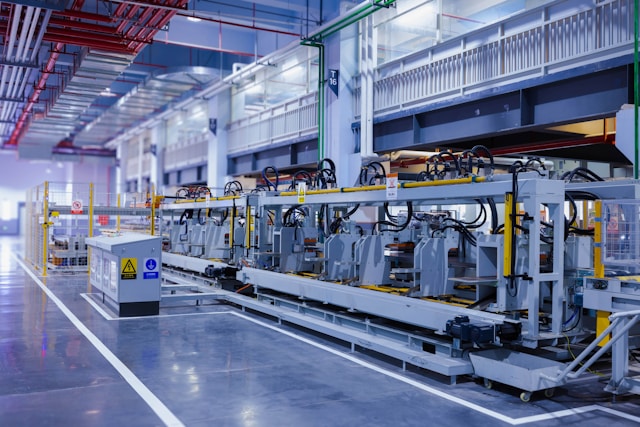
Optimization of Production Processes: Industry 4.0
Industry 4.0, a hallmark of the Fourth Industrial Revolution, is introducing a novel paradigm based on the integration of advanced digital technologies. The Internet of Things (IoT), artificial intelligence (AI), Big Data, and robotics are the pillars of this transformation.
Industry 4.0 in Service of Optimization
The impact of Industry 4.0 translates into a series of tangible benefits for the optimization of production processes:
Increased Visibility and Control: Networked IoT sensors collect real-time data on machines, products, and processes, providing a comprehensive overview of production status. For example, in a foundry, sensors can monitor furnace temperatures, the chemical composition of metal, and production line speeds.
Proactive Maintenance and Predictive Analysis: AI analyzes the collected data to identify patterns and anomalies, allowing for the prediction of failures and the scheduling of preventive maintenance. An automotive company, for instance, can use AI to predict the wear and tear of assembly robots’ components.
Performance Optimization: Machine learning algorithms automatically optimize production parameters such as speed, temperature, and energy consumption, enhancing efficiency and the quality of the final product.
Customized Production: Industry 4.0 opens the door to the production of goods and services tailored to specific customer needs. Technologies such as 3D printing and additive manufacturing enable the creation of unique, customized products.
Human-Machine Collaboration: Collaborative robots (cobots) assist operators with repetitive or dangerous tasks, increasing the safety and ergonomics of work environments.
Concrete Benefits for Companies
The adoption of Industry 4.0 results in tangible advantages for companies:
Increased Productivity: Reduction in cycle times, decreased waste, and optimization of resources.
Improved Quality: Greater uniformity and precision of final products. For example, a pharmaceutical company can use AI to identify and correct potential defects in the production process.
Production Flexibility: Rapid adaptation to changes in demand and customer requirements. An e-commerce company can increase production flexibility by using 3D printing to quickly produce small batches of customized products.
Cost Reduction: Lower waste, optimized maintenance, and reduced energy consumption.
Greater Safety and Well-Being of Workers: Reduction in risks and improvement in working conditions. A chemical company, for instance, can enhance worker safety through improved monitoring and control systems.
Industry 4.0 represents a unique opportunity for companies to optimize production processes, increase competitiveness, and create value for their customers. The challenges are significant, but the potential benefits are immense.
